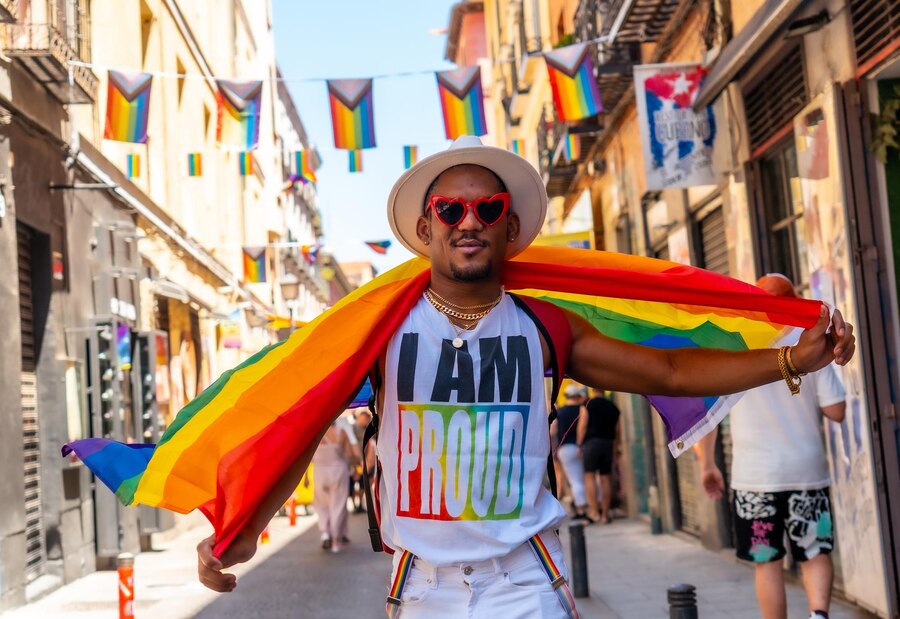Malta becomes first in Europe to ban conversion therapy.
Malta remains a leader in the region and has long maintained ILGA standards of 89 percent. Caterina Camilleri, a spokeswoman for the organization, noted that Malta had become one of the pioneers in Europe in banning conversion therapy, a method previously used to “treat” homosexuality. Legislators in Malta continue to be active in this area.
“Over the last five or six years, the LGBT community on the island has been thriving,” says Caterina Camilleri. Despite the occasional display of intolerance towards homosexual people, she is pleasantly surprised given the island’s small size and the influence of the Catholic Church.
However, the ILGA Europe report shows significant gaps between countries on issues such as gender identity, tackling hate crimes, same-sex marriage, adoption rights and gender recognition. Among the EU member states, the most unfavorable situation is found in Poland, where the implementation of ILGA criteria is only 15 percent.
Changes in Poland: How the PiS government influenced the situation in the country
According to psychologist Julia Kata, who works for the organization Trans-Fuzja, which defends the rights of transsexuals in Warsaw, the situation in Poland is due to the lack of practical legal protection for the LGBT community. She notes that the country does not have laws aimed at countering hate speech. Although the Criminal Code provides penalties for hate crimes, they unfortunately do not cover actions related to sexual orientation, gender or identity. This phenomenon is perceived as the norm.
Julia Kata also emphasizes that discrimination in Poland comes from the ruling national conservative Law and Justice Party (PiS) and its affiliated media. This puts Poland in a contrasting position compared to Malta, where the rights of the LGBT community are more recognized and protected.
Since 2015, the situation in Poland began to deteriorate, since the PiS party came to power. “Hostility has become the norm. When you hear statements like ‘your children, whether they are transgender or gay, are a threat to other children’, and the media is full of such hateful statements, you no longer feel safe in this country,” says Yulia Kata. The activist also claims that many people left Poland because they could not stand such a situation.

In Poland, in general, it is possible to tell your loved ones about your homosexuality, but there is always uncertainty about how they will react to it. Psychologist Yulia Kata believes that it is important to speed up the process of resolving same-sex partnerships, and best of all, the introduction of same-sex marriage in the country. In her opinion, it is unacceptable that children who want to change their name in the case of gender reassignment surgery are forced to go to court to do this. Under Polish law, the parents are considered to have made an error when registering the name on the birth certificate, and this error can only be corrected through legal proceedings.
Family law in the European Union: What powers are missing
According to the LGBT association ILGA, in general, the situation in Europe is moving for the better. ILGA spokesperson, Katrin Hoogendubel, notes that while there are targeted attacks on the transgender community, there are also countries where governments are starting to reform laws affecting transgender people, as is currently happening in Germany. Politicians in these countries are showing understanding and determination to continue reforms.
For example, Spain significantly improved its ILGA score by introducing a comprehensive gender identity law based on the principle of self-determination for affected individuals. The country also prohibits medical procedures that harm intersex children and prohibits discrimination based on sexual orientation or identity.
Moldova and Croatia also showed an improvement in their positions in the ILGA ranking compared to the previous year. Moldova, which has a pro-European government, made an important contribution to improvement by passing a liberal law on gender identity. Croatia, in turn, has expanded adoption rights for same-sex couples.
“This is a bright spot and good news,” says Catherine Hoogendubel, who for many years headed the European branch of ILGA in Brussels. She also notes that one cannot expect much from the European Union in this area, since it does not have powers in the field of family law. Decisions on such issues are taken by EU member states. However, Hoogendubel points out that these countries are preventing the expansion of the EU anti-discrimination directive, which currently only applies in the context of working relationships. She believes the EU could do more on this issue if it had the political will to act.

